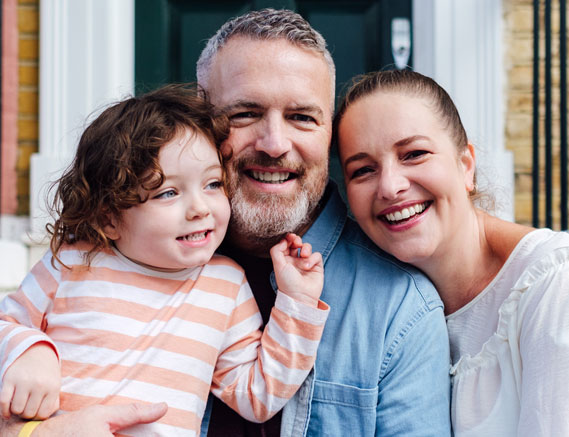Common questions about care home fees
How do care home fees work?
Care home fees are means-tested, so you or your loved one will not have to pay all of your money to fund your care if your capital or income is below a specified level. As well as basic fees, you may also need to pay for personal care. Fees will also vary depending on the facilities provided, such as an en-suite bathroom.
For those with long-term and complex health needs, their fees may be funded by the NHS through NHS Continuing Healthcare (CHC). CHC is not means-tested, meaning you should not answer questions about your financial situation if you believe you or your relative are entitled to CHC. To obtain CHC funding, an individual will need to be assessed by a local Clinical Commissioning Group (CCG).
The initial step is asking a social worker, GP, or other healthcare professional to fill in a checklist which will determine whether an assessment is warranted. CHC funding is not automatically available for conditions such as dementia or Alzheimer’s Disease; it must be established that the individual has complex, substantial, and unpredictable healthcare needs.
How much are care home fees?
The cost of care varies according to region. In England, the average cost of a week’s residential care is around £680. Nursing homes are more expensive than care homes as they have a qualified nurse in attendance 24 hours a day and provide more care and assistance to residents. The average cost of a week’s nursing care is around £980.
How are care home fees paid?
Care home fees are paid by the patient from their income and capital, provided these remain above a set level. Income could be from investments or pensions, while paying from capital may involve selling your home to fund care.
What is the threshold for care home fees?
In England, if you have capital over £23,250, you will be self-funding, meaning you will need to pay your care home fees in full. If you have between £14,250 and £23,250, you will be required to pay a tariff towards the cost of your care. When your capital falls below £14,250, you may be required to pay some money from any income you have, with the council meeting the remaining costs. You or your relative must be given a personal expenses allowance (PEA), currently £23.50 per week, to buy items such as toiletries, treats, and gifts.
What is the threshold for care home fees?
In England, if you have capital over £23,250, you will be self-funding, meaning you will need to pay your care home fees in full. If you have between £14,250 and £23,250, you will be required to pay a tariff towards the cost of your care. When your capital falls below £14,250, you may be required to pay some money from any income you have, with the council meeting the remaining costs. You or your relative must be given a personal expenses allowance (PEA), currently £23.50 per week, to buy items such as toiletries, treats, and gifts.
What is the cap on care home fees?
In October 2023, a cap on care home fees payable by individuals will come into force. This means that once someone has paid £86,000 for personal care, they cannot be asked to pay any more. Personal care refers to help with day-to-day tasks such as dressing, washing, and eating, but does not include other costs, such as accommodation and food.
The capital limits will also be increased so that no one will be required to contribute to their personal care fees once their assets fall below £20,000. Some assistance with fees will be available to those with less than £100,000.
What happens when the money runs out for care home fees?
Once the funds of you or your relative fall below the savings threshold for care home costs, you can request a means test from the local authority, who should start paying for basic care needs. The local authority will set up a personal budget. They may provide care by dealing directly with the care provider, or you can ask for direct payments to arrange care where necessary and handle payments yourself.
How can you avoid care home fees?
Giving away your assets to avoid care home fees is not permitted. It is referred to as deprivation of assets, and if the local authority believes that you have tried to avoid paying for care in this way, it has powers to investigate, charge for care, and reverse transfers where necessary. In looking at deliberate deprivation of assets, the local authority can go back in time as far as it wishes. If it concludes that at the time you could reasonably have expected that you would need care and support, it can reach a conclusion of deliberate deprivation.
This does not mean that you cannot take steps to protect your assets, however. For example, if you jointly own a property with your spouse, you can protect your share in the property from being used to pay your spouse’s care home fees in the future. The law in this area is complicated, and it is highly recommended that you speak to an expert in care home fees advice to ensure that you take the right course of action for your situation.
How can you avoid selling your house to pay for care home fees?
If you do not wish to sell your home to pay for care home fees, there are other options available, such as:
- Deferred payment: Some local authorities allow individuals to defer payment to a future date so that their property does not need to be sold in their lifetime.
- Equity release: It is possible to raise funds against your home without selling it, but this may not be the best option financially, so it is essential to take independent legal advice if considering this.
- Immediate needs care annuity: This is an insurance plan that can be used if you are likely to need long-term care. Again, you should take independent advice before selecting this option.
Can you place your house in a trust to avoid care home fees?
You cannot put your house into a trust to avoid paying care home fees as this is classed as deliberate deprivation of assets.
Can you be forced to sell a jointly owned property to pay care home fees?
You will not be made to sell a jointly owned property to fund care fees if your partner is still living in the property, nor will the value of the property be taken into account when carrying out a means test. The exception to this is where you and your partner are no longer living together but still own part of the property. In this event, the value of your share will be taken into account in the means test, and there is a possibility that the property will need to be sold.

Navigating the probate process during a time of loss can be challenging and emotionally draining. Our team is dedicated to providing clear, compassionate guidance to ensure that your loved one's wishes are honored and their estate is managed smoothly. We're here to support you every step of the way, offering expertise and care when you need it most.
Andrew Horwich Senior Partner

Lines open Monday to Friday, 9am to 5pm










